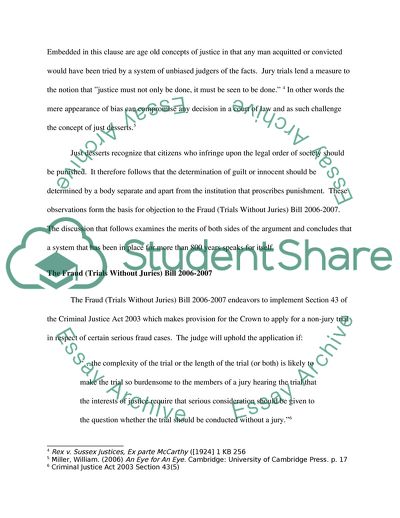Cite this document
(The Concept of Trial by Jury Term Paper Example | Topics and Well Written Essays - 2538 words, n.d.)
The Concept of Trial by Jury Term Paper Example | Topics and Well Written Essays - 2538 words. Retrieved from https://studentshare.org/law/1709339-those-who-argued-for-restricting-the-right-to-jury-trial-misunderstood-the-symbolic-role-of-the-jury-this-symbolic-role-is-as-important-as-the-need-for-just-d
The Concept of Trial by Jury Term Paper Example | Topics and Well Written Essays - 2538 words. Retrieved from https://studentshare.org/law/1709339-those-who-argued-for-restricting-the-right-to-jury-trial-misunderstood-the-symbolic-role-of-the-jury-this-symbolic-role-is-as-important-as-the-need-for-just-d
(The Concept of Trial by Jury Term Paper Example | Topics and Well Written Essays - 2538 Words)
The Concept of Trial by Jury Term Paper Example | Topics and Well Written Essays - 2538 Words. https://studentshare.org/law/1709339-those-who-argued-for-restricting-the-right-to-jury-trial-misunderstood-the-symbolic-role-of-the-jury-this-symbolic-role-is-as-important-as-the-need-for-just-d.
The Concept of Trial by Jury Term Paper Example | Topics and Well Written Essays - 2538 Words. https://studentshare.org/law/1709339-those-who-argued-for-restricting-the-right-to-jury-trial-misunderstood-the-symbolic-role-of-the-jury-this-symbolic-role-is-as-important-as-the-need-for-just-d.
“The Concept of Trial by Jury Term Paper Example | Topics and Well Written Essays - 2538 Words”. https://studentshare.org/law/1709339-those-who-argued-for-restricting-the-right-to-jury-trial-misunderstood-the-symbolic-role-of-the-jury-this-symbolic-role-is-as-important-as-the-need-for-just-d.


